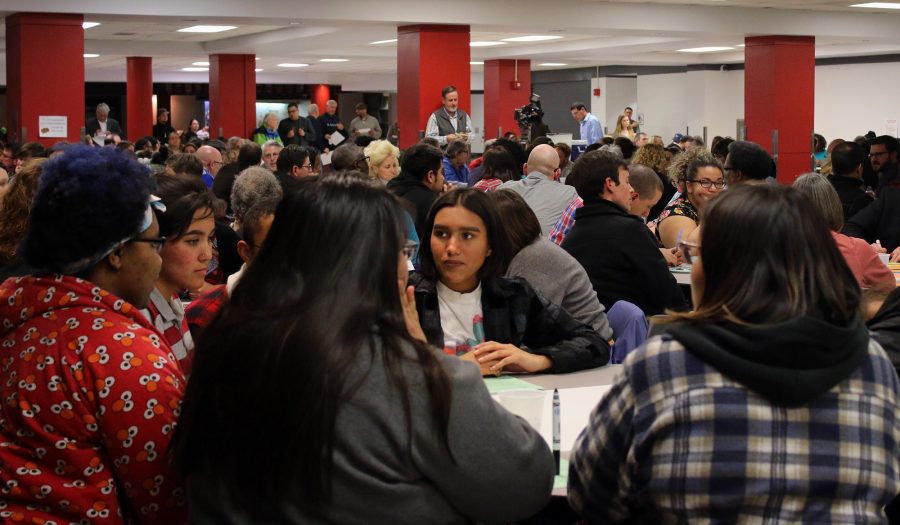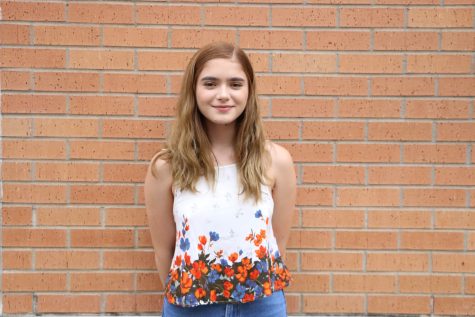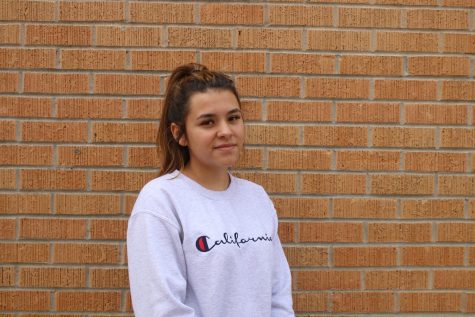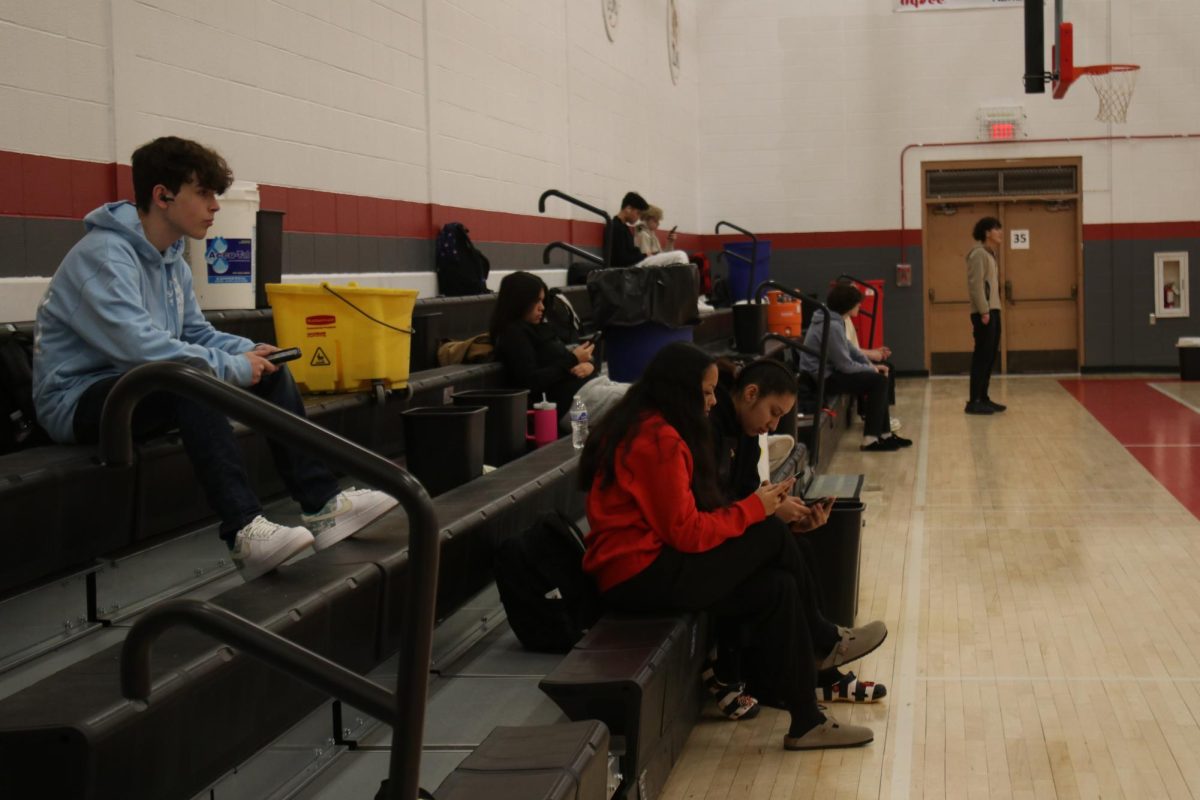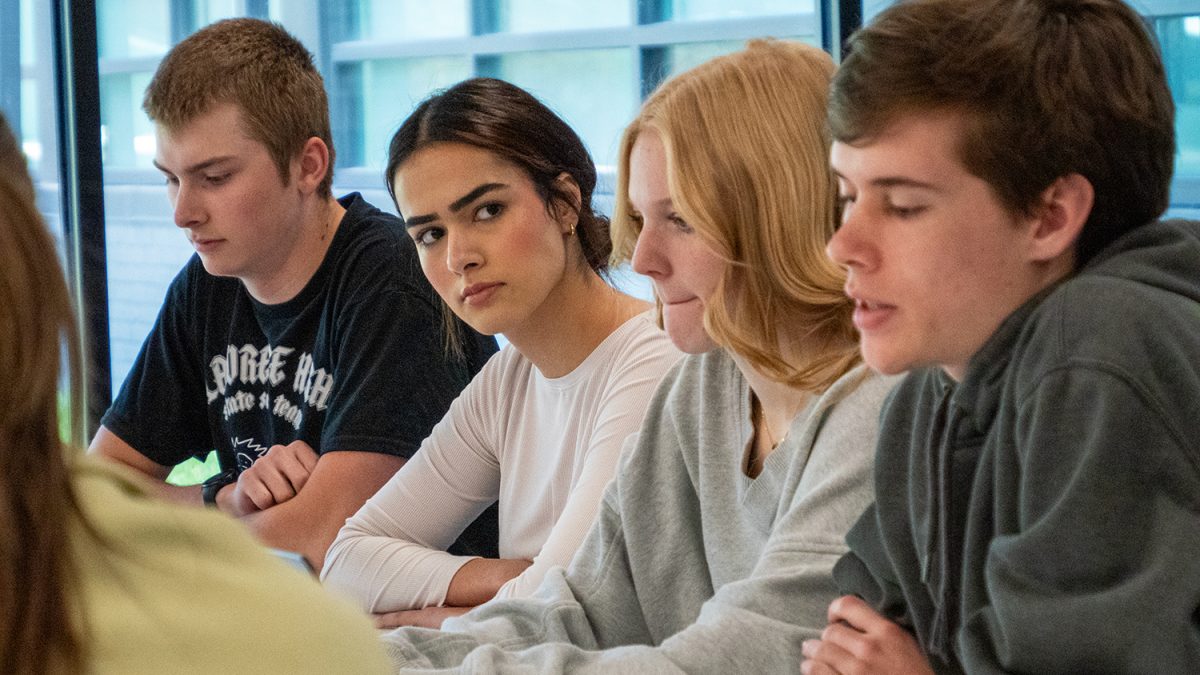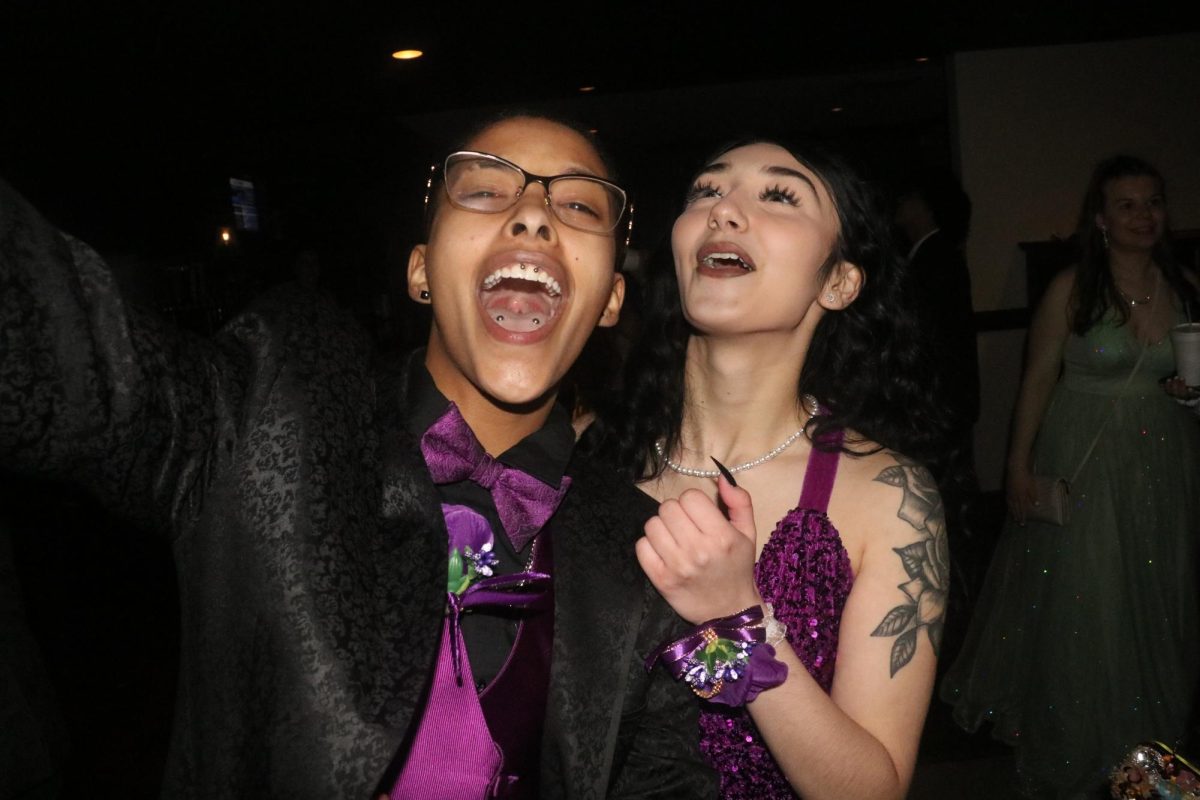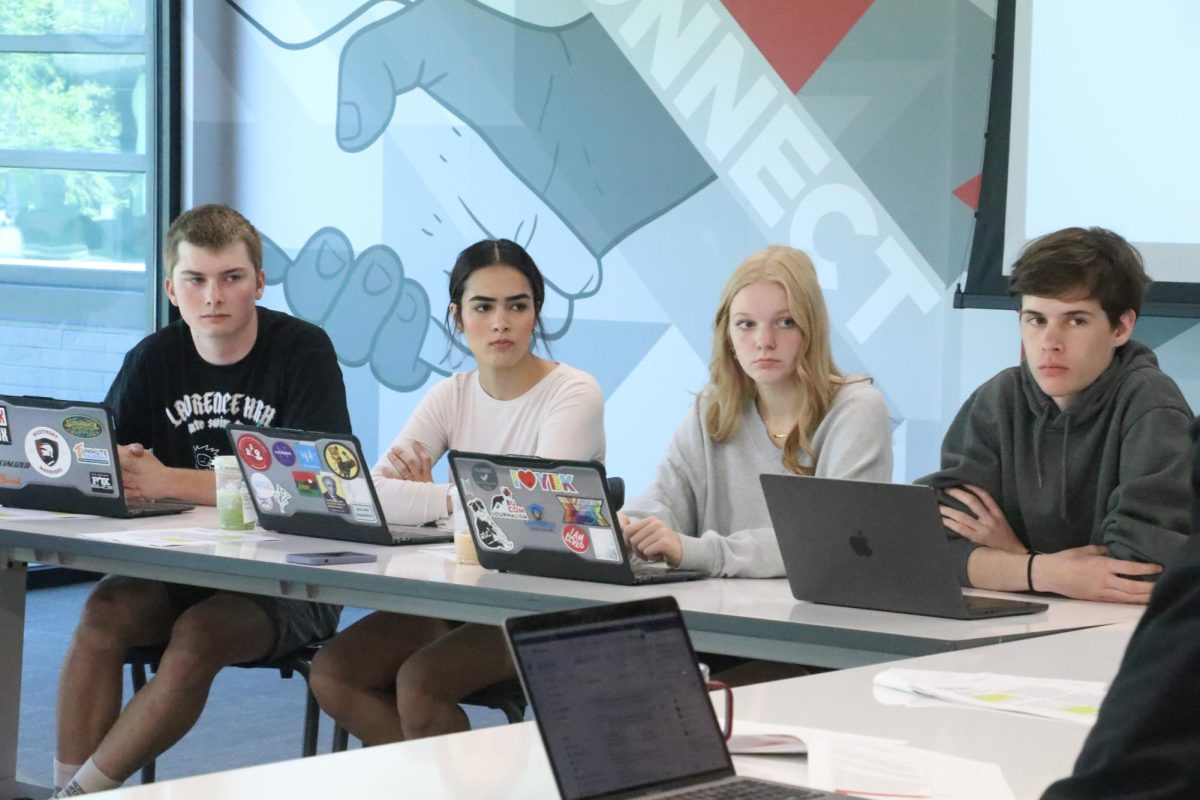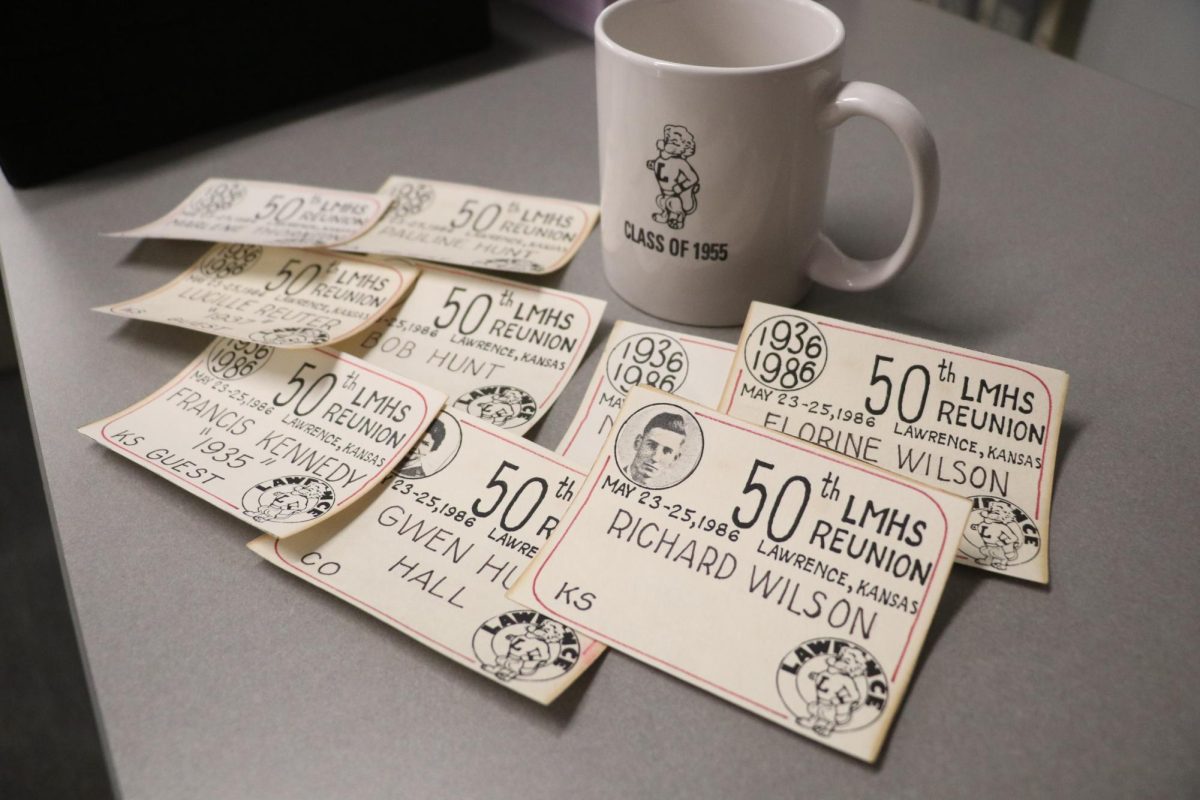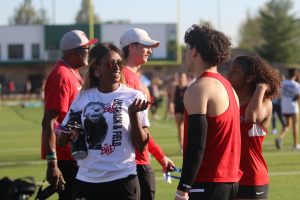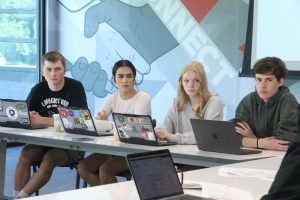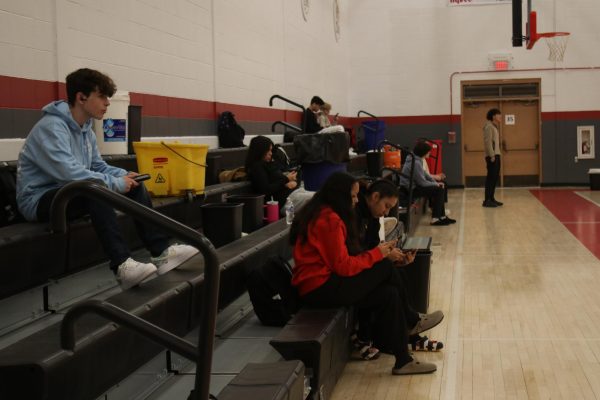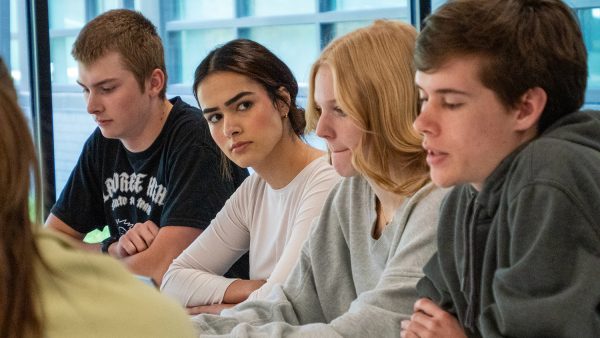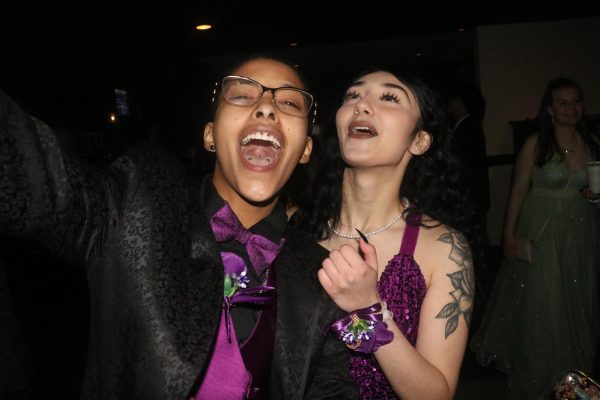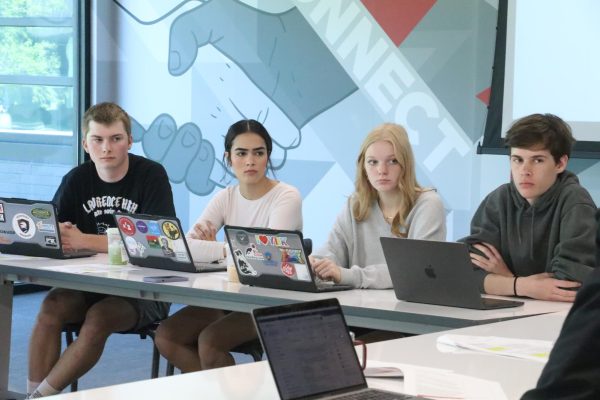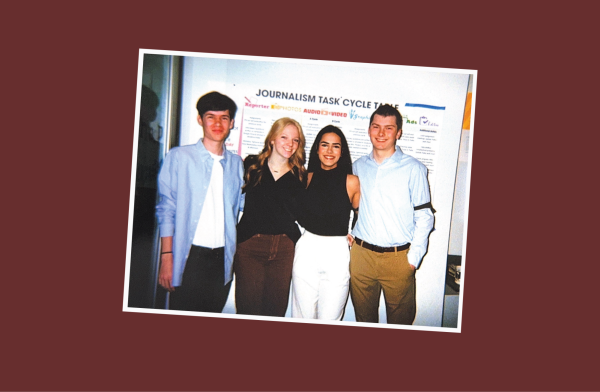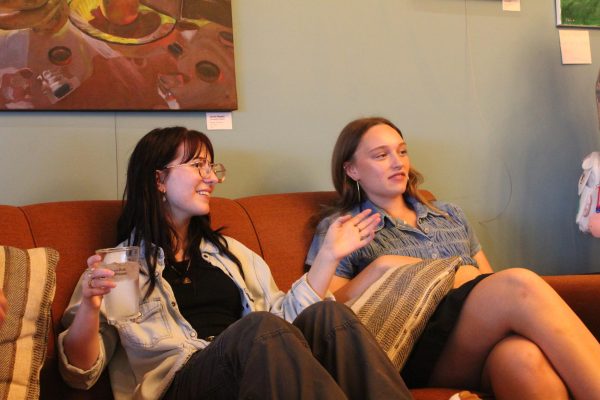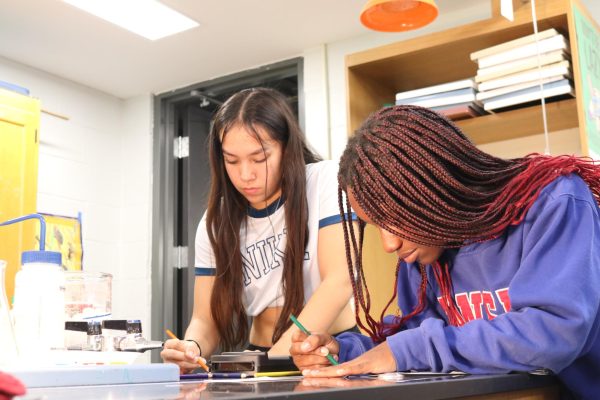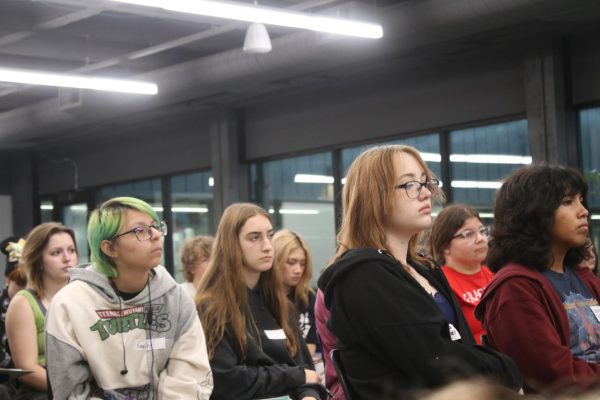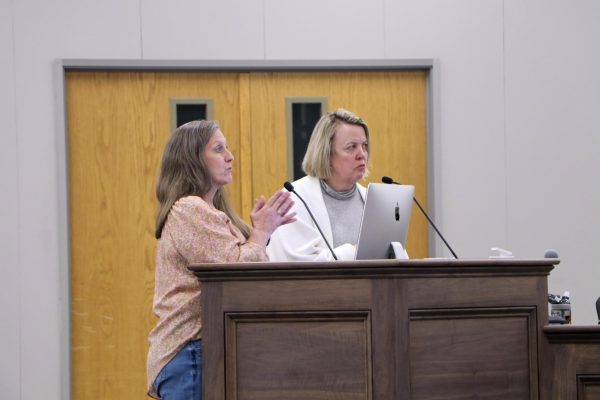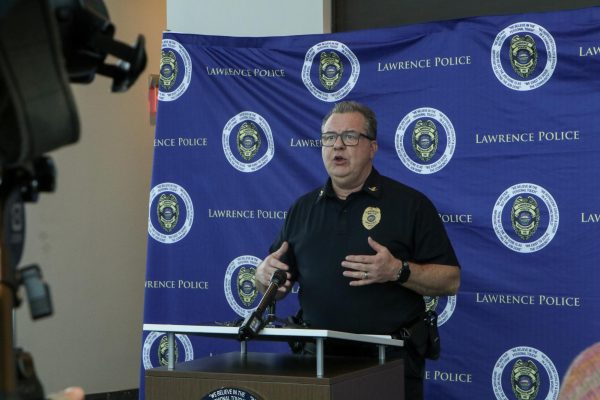Equity work discussed at community conversation
Sophomore Hunter Yellowbird sits with other Inter-Tribal Club members during the Community Conversation on Monday night. Students, community members and parents came together to discuss equity issues in USD 497.
January 31, 2017
The Lawrence High cafeteria was full last night as the district-wide equity meeting began at 6 p.m.
Hundreds of parents, students and USD 497 faculty crowded into the cafeteria for a courageous conversation led by the grandparent of two Lawrence students.
The meeting began with school board member Marcel Harmon sharing the importance of the night’s discussion, calling it a “critical step for our district.”
Harmon was at the meeting as both a school board member and a parent of students in Lawrence schools. Race continues to affect the way children are treated, he noted. He said that his children are “benefitting because they’re white and their parents are white. That isn’t OK.”
The meeting began with the issue everyone had prepared notes, PowerPoints, speeches and talking points for.
Institutional racism and unconscious biases still exist in our schools.
— Marcel Harmon
The mic was turned to superintendent Kyle Hayden, who was hired as the superintendent of Lawrence schools last March. Hayden followed former superintendent Rick Doll, who emphasized the importance of equity work during his career, including beginning “Courageous Conversations” training with staff members.
After emphasizing the importance of being engaged, speaking the truth, being uncomfortable and accepting that a resolution might not be met that night, Hayden introduced pastor Adrion Roberson. Roberson facilitated the night’s presentation.
Roberson began by telling attendees about his experiences in Kansas City, Kan., where he leads a congregation. Roberson described meeting with white, Latino and other black pastors in his area to understand where the anger seen in cities like Ferguson, Mo., came from, and he told a story about his son who married into a Hispanic family.
Between anecdotes, he outlined the goals of the meeting and the “ground rules for engagement.”
The tables in the cafeteria had been set with neon pink, yellow, orange and green notecards for an activity that funneled audience opinions into large sheets of paper with suggestions for the district.
After the activity, parents and students, including the Lawrence High School Inter-Tribal Club, went up to the mic to express their opinions and concerns.
The conversation was not without critique. Groups of students and parents expected a forum with the school board, but instead got a two-hour session led by Roberson.
Roberson’s approach to the night was to see the racism in the district as an adaptive problem as opposed to a technical problem.
“I hope that you’re looking at this thing from the perspective of progress,” Roberson said.
Jennifer Hamer, a parent and professor at the University of Kansas, said she wanted to see action.
“I disagree with the pastor, even though I appreciate, you know, his facilitation today,” said Hamer, associate dean for diversity, equity and inclusion chair of the department of American studies at the University of Kansas. “This is not about progress. This is about a fix. I think if we just say, ‘all we can do is have progress,’ we may as well stop right now. My daughter is in this school district, and I have friends who have kids in this school district, and we better figure out how to fix it. We know how to fix it.”



